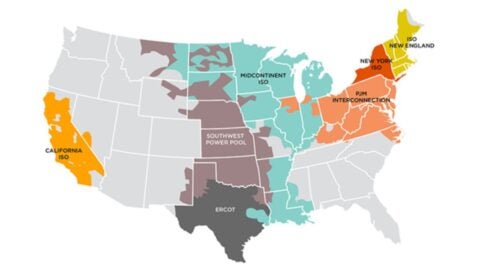What Cap and Trade Means for Latinos in the Golden State
 On January 15, Environmental Defense Fund released the second report in a series that explores how one of California’s signature climate and clean energy policies – our cap-and-trade program – is working. Today, EDF is making this information available in Spanish – you can find the Executive Summary here along with our press release. The report has generated a large amount of interest, given the increased urgency of the issue, and the growing number of states and regions looking at initiating more robust climate policies. So, what do we mean when we say the cap-and-trade program is “working,” and what does this mean for Latinos in the Golden State?
On January 15, Environmental Defense Fund released the second report in a series that explores how one of California’s signature climate and clean energy policies – our cap-and-trade program – is working. Today, EDF is making this information available in Spanish – you can find the Executive Summary here along with our press release. The report has generated a large amount of interest, given the increased urgency of the issue, and the growing number of states and regions looking at initiating more robust climate policies. So, what do we mean when we say the cap-and-trade program is “working,” and what does this mean for Latinos in the Golden State?
Here’s how EDF looked at whether the program is working. For starters, the report examines the data on the critical goal of reducing harmful greenhouse gas emissions. These are the emissions that drive climate change, pollute our air, and exacerbate extreme weather patterns. But there are other important goals in the mix, too. One is allowing the state to maintain healthy economic growth while implementing a system of policies that curbs climate change by limiting carbon pollution. And what about making sure the cap-and-trade program benefits all communities, including those already suffering the worst effects of climate change?
Good news on all fronts. The report concludes that after two years of operation, emissions capped by the program are going down. At the same time, the state’s economic progress continues to march forward, especially when it comes to the growth of green jobs.
In fact, jobs in California’s core clean energy economy have grown 10 times as fast as the job growth in the overall economy. And we aren’t talking about low-paying jobs: workers building solar arrays, for example, earn an average of $78,000 per year, plus health and other benefits. Green jobs are highly accessible to all Californians, offering a variety of roles to be filled and spanning a wide variety of education and skill levels. These opportunities are perhaps most important for Latinos and African-Americans in California; according to the Public Policy Institute of California, for both groups nearly 1 in 4 lives in poverty.
And what about the communities that are being hardest hit by climate change? Thanks to a group of thoughtful leaders – including Senate President Pro Tem Kevin de León and many community-based organizations – Senate Bill 535 ensures that at least 25% of the cap-and-trade program’s auction proceeds get reinvested in projects that benefit disadvantaged California communities. While the plans for these investments are still taking shape, we know that the dollars will be flowing to communities that are gearing up to find new ways to reduce greenhouse gas emissions.
As Latinos, we also have an especially important role to play in this progress. Nationally, 9 in 10 Latinos want the government to take action against the dangers of climate change and global warming, putting us among the most forward-thinking Americans when it comes to transitioning to a clean energy economy. As California’s largest demographic group, making up 38% of the population, we have tremendous opportunities to raise our voices and support climate and clean energy policies that allow our economy to grow, address climate change, provide job opportunities, and protect our health. We also have an opportunity to help build momentum for global action by sharing lessons learned with other countries, including Mexico and Peru, about climate change policies that work.
To take full advantage of the benefits from these policies, it’s also important for our communities to be informed – for example, knowing that clean energy solutions are for everyone. Take this story from our partners at the Greenlining Institute, highlighting how a Central Valley family from Michoacán is making the switch to solar energy. Spoiler: they’re saving on their energy bill and helping protect the broader community from the health-harming pollution that comes from fossil-fuel based energy sources.
Climate change affects us all, and even if we speak English, we know that many of our familiares, amigos, y vecinos, prefer Spanish. Making this report available to hispanohablantes is just one small step EDF is taking amidst efforts state-wide to ensure that all Californians can be a part of a new, clean energy economy. We are also working inclusively and in partnership with an increasingly diverse range of organizations and leaders, and developing other multi-lingual resources to share with communities that care about and are increasingly vulnerable to climate change.
What’s important to remember is that it’s not just about us. It’s also about our children and our grandchildren, and reimagining the American dream to include a healthy economy and a stable climate. In the words of Julián Castro, “The American dream is not a sprint, or even a marathon, but a relay. Our families don’t always cross the finish line in the span of one generation. But each generation passes on to the next the fruits of their labor.” This report gives us signs of hope that we can win this relay leg and subsequent ones, if we all get involved and do our part.












